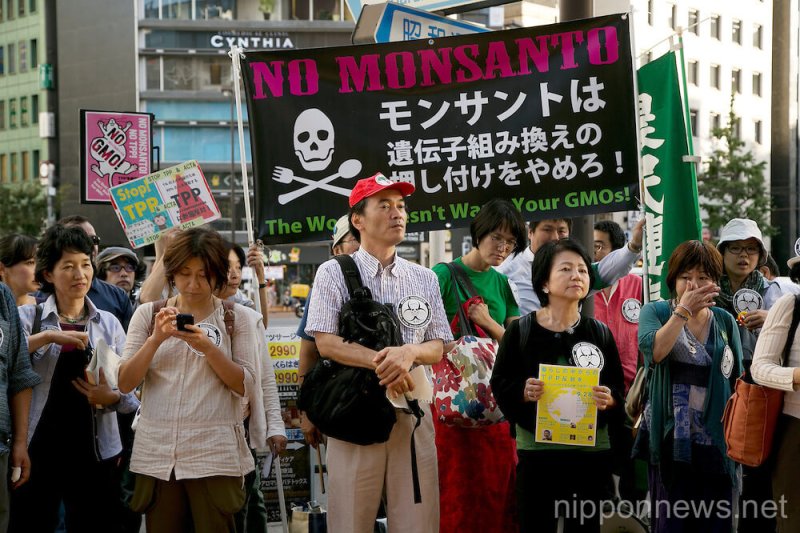Consumer groups and farmers in Japan fear the repercussions of the Trans-Pacific Partnership trade agreement (TPP), which is quickly moving forward on the heels of Prime Minister Shinzo Abe’s conference of the other ten nations (including Australia, Canada, Malaysia, New Zealand, Singapore, and Vietnam) now involved in talks.
…
The story of GMOs in Japan is one that has been largely advanced through citizens and consumer campaigns. Topping the list of groups working on the issue is the Citizens Union of Japan or (CUJ), which has been actively advocating for GMO labeling since the early 1990s, after the Japanese government approved the domestic sale of imported GM soybeans, corn, and other grains.
…
Along with the CUJ, the Non-GMO campaign has the goal of a GMO-free Japan and like the CUJ opposes Japan’s move to advance the TPP.
…
Japan scrapped its 1952 Seed Law, which was the legal foundation for Japan’s agricultural experiment stations, in advance of TPP negotiations….
…
The TPP does not restrict the trade of GMOs and establishes that countries are not required to modify or adopt laws, regulations, or policies to control products of biotechnology.
…
If the TPP fails to move forward and the other agreements proceed, Japan will lose the opportunity to build strong rules and norms in the region that reflect the values that Tokyo considers important. Consumer groups and farmers opposing the deal are facing an uphill battle.
Read full, original post: TPP Sows Fear in Japan’s Agriculture Industry































